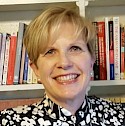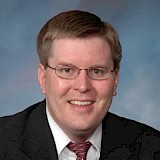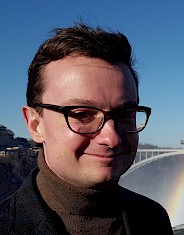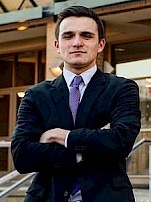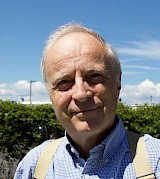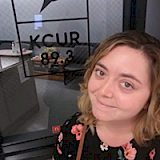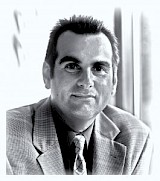Happening Now
RailNation:California Confirmed Speakers & Presenters
- RailNation:California - Sacramento Event Registration
- RailNation:California - Sacramento - Optional Trips & Tours
- Sheraton Grand History
- RailNation:California - Friday Welcome Networking Reception & Awards Presentation
- RailNation California Event Agenda & Program
- RailNation:California - Advocacy Workshop
The Following Speakers & Presenters Have Been Confirmed For The RailNation:California, Saturday, October 19 Advocacy Symposium
|
Saturday Lunch Keynote Address: Deputy Secretary for Transportation California State Transportation Agency ‘Applying The California ExperienceTo The Rest Of The United States’ |
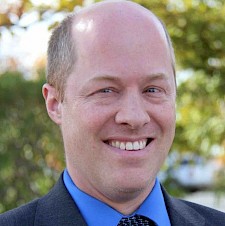 |
|
Morning 'Inclusion And Equity Track' Session Moderator - Jim Mathews 'Inclusion & Equity In Transit & Housing' Presenter - Alfred Twu & 'Valuing Inclusion And Equity Over Zero-Sum Thinking In Public Transportation' Presenter - Jason Lee |
Jason Lee |
|
Morning ‘Making Change Happen Track' Session Moderator - Matt Melzer Plucky Corridors, Regional Rail, and the Green New Deal Presenters - Karen Christenson, Michael Christensen & Robert Munson |
Karen Christenson
Michael Christensen |
|
Morning 'What Passengers Want Track' Session Moderator - George Chilson ‘California’s Coordinated Multi-Modal Scheduling Plan’ Jim Allison & Abe Zumwalt |
|
|
Afternoon 'Inclusion And Equity Track' Session Moderator - Michael Christensen ‘Engaging Youth Stakeholders in Transit Advocacy' Presenters - George Basile (Founder - New York Youth Transit Advocacy Committee), Seung Lee & Alicia Trost |
George Basile |
|
Afternoon ‘Making Change Happen Track' Session Moderator – Tom Girsch ‘Changing Rail Passenger Policy’ Presenters - Carl Fowler & Doug Kerr |
Carl Fowler
Doug Kerr |
|
Afternoon 'What Passengers Want Track' Session Moderator - Bruce Becker ‘Improving the Rail-Getaway Experience’ Presenters: Tom Martinelli & Chef Madi Butler |
Chef Madi Butler
Tom Martinelli |
Morning 'Inclusion And Equity Track' Session
‘Inclusion & Equity In Transit & Housing’
With the growing popularity of rail, Transit Villages and Transit-Oriented Development are being built at many stations. Consisting of high density homes and businesses within walking distance of the station, these can boost ridership and reduce transportation costs. This presentation will go over some of the challenges, such as jobs-housing balance and gentrification, as well as some of the solutions, such as affordable housing policy and funding. We'll conclude with a highlight of recent and pending California legislation around housing and transit.
Presenter: Alfred Twu
'Valuing Inclusion And Equity Over Zero-Sum Thinking In Public Transportation'
What would it take to create a truly equitable and inclusive public transportation system?
Rather than advocating for the resources to achieve this growth vision, many people have settled for current levels of inadequate funding. With a zero-sum mindset, they have focused on a different question: Given a fixed budget, should we prioritize “ridership” or “coverage” service? As a result, networks ranging in scale from local transit to Amtrak have shrunk their footprint to focus on the busiest corridors, resulting in unmet ridership potential and in some cases in huge ridership losses.
With an inclusion and equity mindset, other cities have successfully made the case for additional resources. Some have achieved huge ridership gains, even where sprawling and car-oriented land use would suggest otherwise. Could this perspective help Amtrak build a more comprehensive and successful national network?
Presenter: Jason Lee
Moderator – Matt Melzer
Plucky Corridors, Regional Rail, and the Green New Deal
As a small and plucky organization, Rail Passengers Association offers insights into winning hearts and minds in the U.S. Senate—often an obstacle to innovations in federal policy. With its initial blueprint for the next generation of intercity rail, Rail Passengers Association also offers an organizing model for corridors that will help update commuter rail into Regional Rail (RR) – a central element in connecting the micro-mobility revolution to metropolitan transportation. Politics may be driving Americans apart, but trains can bring us together—a message at the heart of Rail Passengers Association's tactics, and critical to shaping a new deal for sustainable transportation.
Presenters: Karen Christenson, Michael Christensen & Robert Munson
Moderator – George Chilson
‘California’s Coordinated Multi-Modal Scheduling Plan’
Presenter - Jim Allison
'Advancing The Case For A Daily Sunset'
Presenter - Abe Zumwalt
Moderator – Mike Christensen
‘Engaging Youth Stakeholders in Transit Advocacy'
The New York Youth Transit Advocacy Committee (NYYTAC) was created to address the lack of representation of young commuters on the MTA’s board. But representation is only the beginning. Young people face big and unique challenges: stagnant wages, massive fare hikes, and crumbling infrastructure that fails to comply with ADA guidelines. Organizations like NYYTAC, which create an avenue for young people to advocate for their interests to public and transit officials, are necessary to germinate inclusiveness in transit agencies. Advocacy organizations better amplify voices and ensure that stakeholders are heard in all discourse surrounding transit policy and are necessary to create effective as well as equitable policies.
Presenters: George Basile, Seung Lee & Alicia Trost
Moderator – Tom Girsch
‘Changing Rail Passenger Policy’
While new forms of travel have always proved popular with the American people, the federal government historically has been reluctant to invest tax dollars in the transportation infrastructure needed to support new technologies, and funding has come only after long and arduous campaigns by citizen-activists. Passenger-rail advocates must prepare to fight, to lose, and to fight again, repeatedly. In particular, passenger-rail advocates must learn to “think freight” and explore ways to partner with Class 1s in seeking federal investment.
Presenters: Doug Kerr & Carl Fowler
Moderator – Bruce Becker
‘Improving the Rail-Getaway Experience’
What are the best ways to provide unique rail experiences for different passenger demographics? How do rail passengers prefer to get their information – and how can they avoid information overload? We’ll discuss rail partnerships with other transportation companies that allow for easy connections to a final destination, with a spotlight on multimodal tourism using bicycles in conjunction with rail and local buses. We’ll also cover highlights and trends from the Downeaster and New York by Rail travel package programs.
Presenters: Tom Martinelli & Chef Madi Butler
"We would not be in the position we’re in if it weren’t for the advocacy of so many of you, over a long period of time, who have believed in passenger rail, and believe that passenger rail should really be a part of America’s intermodal transportation system."
Secretary Ray LaHood, U.S. Department of Transportation
2011 Spring Council Meeting


